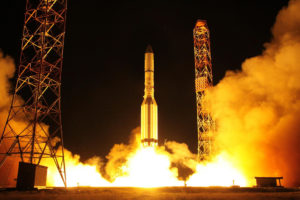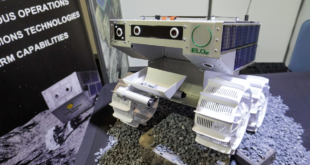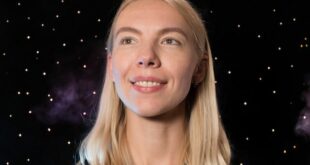
The Russian state space corporation Roscosmos has been accused by a Russian journalist of spending “billions on space but kopecks” on the engineering talent required for the sustainable and long-term success of Russia’s space ambitions.
Vladimir Koryagin, an investigative journalist for Lenta, wrote a report titled “A Flight to Nowhere: Russia Spends Billions on Space and Kopecks for Engineers. Where is the Money Going?” for Lenta, but the story has since been taken down from the publication’s website, presumably at the behest of Russian authorities. According Paul Goble, a noted analyst of Russian strategic affairs, Koryagin’s report detailed “the way in which corruption, mismanagement, underfunding, and ignoring the basic requirements for training and especially retaining engineering talent, Russia has lost the advantages it inherited from Soviet times.”
According to Goble, Koryagin describes how Roscosmos is not training enough new engineers or paying them sufficiently to retain them in the state corporation. As a result, the skillsets of employees are in decline, Roscosmos research staff are aging without being replaced, and the Russian space programme “is falling ever further behind other countries and even private corporations now involved in space work.”
Furthermore, Roscosmos is launching fewer satellites and other space mission with each passing year, and has suffered significant technical failures in the satellites and space vehicles it has launched – in large part likely due to quality control issues in its manufacturing base. Meanwhile, according to Goble, Roscosmos “seems to worry most of all about keeping the prices of its rockets low to attract some buyers and to maintaining ties with the U.S. so as to get money coming in for Russia’s role in the International Space Station.”
Based on Goble’s translation of Koryagin’s story that was retrieved from a cached website, the Kremlin must decide whether, “to fly into space or to save on the people and scientific research which makes this possible. If it wants to remain a space power…it will have to spend more money not just on the branch as a whole but especially on the training of new cadres.”
“The most valuable capital is people,” Vladimir Koryagin writes, “and cadres decide everything. Therefore, the rocket-space industry must have competent, able and really motivated professionals of all kinds, from workers to the heads of enterprises.” If the pay and conditions of current engineers do not improve, and if the state of Roscosmos’ future workforce is not addressed, Koryagin says, then “this task is utopian.”
The revelation of the censored Koryagin report comes just after a senior Roscosmos official accused Russian media and unidentified international sources of mounting an “information attack” against the state corporation that has become beset with a spate of high-profile technical failures and allegations of corruption and financial irregularities.
 SpaceWatch.Global An independent perspective on space
SpaceWatch.Global An independent perspective on space




